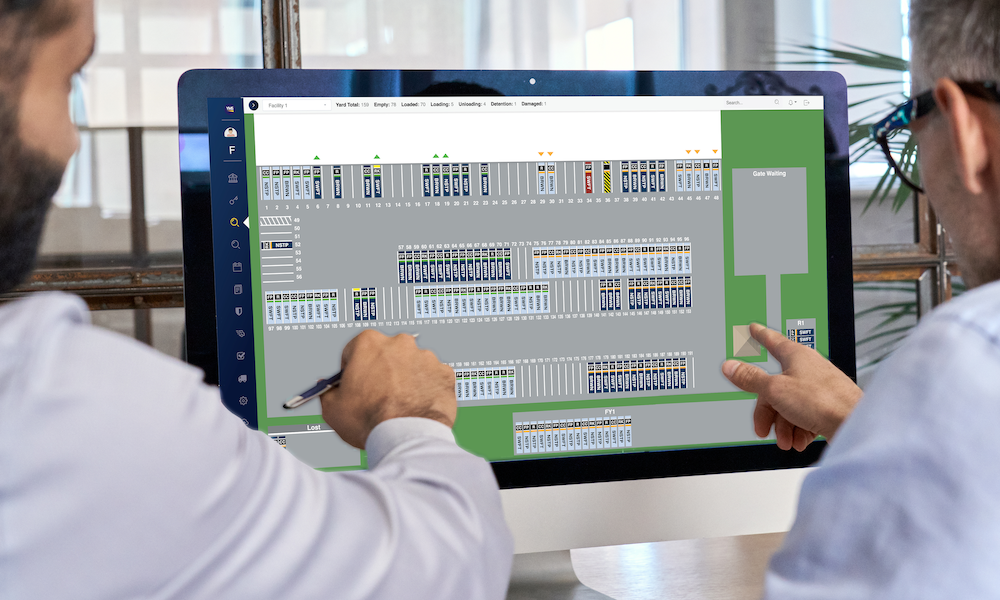Solving The Detention and Demurrage Fee Dilemma
Every day, hidden fees like detention and demurrage charges chip away at your profits. These costs can be a logistical nightmare, but they don't have to be. Discover how a yard management system can provide the real-time visibility and proactive management you need to slash these costs and improve your operational efficiency.
Understanding Detention and Demurrage Charges
Detention fees occur when a customer keeps a container or trailer in the yard beyond the allotted free time. Demurrage fees, on the other hand, are associated with containers at ports or terminals that remain beyond the free day period. Both types of fees can quickly add up, leading to substantial extra costs for companies.
Managing these fees is complex due to the various rules and contracts imposed by different shipping companies. Each carrier may have different free day allowances and fee structures, making manual tracking challenging and error-prone. Facilities relying on outdated methods such as paper records, spreadsheets, and radios are particularly vulnerable to these inefficiencies.
The Role of Yard Management
Yard management is a critical yet often neglected part of the supply chain. Efficient yard management ensures that containers and trailers are moved and processed in a timely manner, reducing the risk of incurring detention and demurrage charges.

The Solution: Yard Management Software
A dedicated yard management system can address these challenges by offering automated tracking, real-time alerts, and comprehensive reporting capabilities. Here’s how a YMS can transform yard operations:
-
Real-Time Visibility:
Yard management software provides real-time visibility into yard operations, allowing managers to see exactly which trailers are in and approaching detention. This crucial insight helps managers make informed decisions and take proactive measures to resolve issues before they result in extra charges. By knowing the status of all containers and trailers at any given moment, managers can optimize yard operations, avoid unnecessary wait times, and improve overall efficiency. -
Automated Alerts and Notifications:
Yard management systems can send real-time alerts to managers when a container or trailer is approaching its free day limit. This allows for proactive management, preventing unnecessary detention and demurrage charges. Real-time alerts help in identifying potential issues before they become costly problems. For example, if a trailer is nearing the end of the number of free days, the system can alert the responsible team to take action, such as prioritizing its load and unload. This proactive approach minimizes the risk of incurring additional fees. -
Comprehensive Reporting:
A YMS generates detailed reports that can be used to dispute invalid fees. These reports provide a clear record of when containers and trailers were in the yard, helping companies avoid paying unjustified charges. Comprehensive reporting offers a historical record of all yard activities, which is essential for auditing and dispute resolution. If a carrier sends a bill for detention or demurrage charges, the facility can refer to these reports to verify the validity of the charges. This transparency strengthens the facility’s position in negotiations with shipping lines. -
Custom Detention Rules:
Yard management software allows facilities to set custom detention rules based on various factors such as the type of vehicle, carrier, and whether it is a live load or drop load. These rules can be adjusted at any time to reflect changes in operations or contracts. Custom detention rules enable facilities to tailor their management strategies to their specific needs. -
Integration with GPS Systems:
For even greater efficiency, a YMS can integrate with onboard GPS systems on trailers and containers. This allows for automatic clocking in and out of assets as they enter and leave the yard, further reducing the need for manual intervention. This level of automation is particularly beneficial for large facilities with high traffic volumes. -
Improved Utilization Tracking:
A YMS helps facilities track the utilization of their assets, identifying which trailers have been in the yard too long or are underutilized. This helps in optimizing the use of available resources and improving overall efficiency. Utilization tracking provides valuable insights into asset management. Facilities can identify bottlenecks, optimize resource allocation, and ensure that trailers and containers are used effectively. This not only reduces detention fees but also improves overall operational efficiency. - Challenge and Reverse Detention Charges:
By having detailed visibility into which trailers are overstaying, facilities can challenge detention charges and even charge carriers for leaving trailers in their yard for too long. This capability allows companies to turn the tables, generating additional revenue from carriers who do not adhere to agreed timelines.
Additional Benefits
Beyond detention and demurrage savings, a YMS offers many other benefits including, but not limited to:
- Improved Employee Satisfaction: By automating tedious manual processes, employees can focus on more strategic tasks, leading to higher job satisfaction.
- Streamlined Processes: A YMS standardizes and streamlines yard operations, making them more efficient and reducing the risk of errors. Better Vendor Relationships: With accurate tracking and reporting, companies can maintain better relationships with carriers and vendors, avoiding disputes over fees.

How Much Could You Be Saving?
Demurrage and Detention charges are a significant challenge in the logistics and supply chain industry, but they are not unavoidable. By implementing a dedicated Yard Management System, companies can gain better control over their yard operations, reduce unnecessary fees, and achieve substantial cost savings.